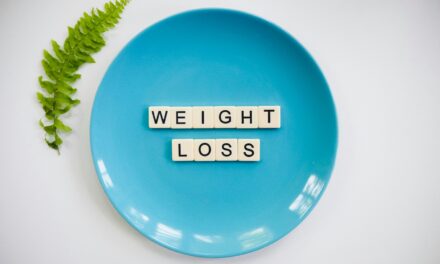Empower Your Recovery Journey
Discover how to balance strength training with mental well-being, and learn to listen to your body’s needs.
Bodyweight Training
Start your fitness journey with simple, effective exercises that require no equipment.
Weight Training
Build strength and confidence with science-backed methods using free weights.
Strength training isn’t just for gym bros.
Strength training, also known as resistance training, is one of the most effective ways to support both your physical and mental health. It helps us build strength, boost metabolism, and improve body composition. But there’s more to it than aesthetics or muscle definition.
For women, especially, strength training plays a crucial role in long-term health, particularly in maintaining bone density, regulating hormone balance, and boosting body confidence. But like any powerful tool, it can be misused. In this blog, we’ll explore 5 types of strength training, their benefits, and the red flags to watch out for, especially if you’re recovering from disordered eating, low weight, or compulsive exercise patterns like gymorexia.
Bodyweight Training – A Gentle Start
Bodyweight Training, Start Where You Are
You don’t need a gym or any equipment to begin strength training. Bodyweight movements, such as squats, lunges, planks, and push-ups, can effectively build muscle, improve flexibility, coordination, and core strength.
Benefits:
➔ Improves balance and functional movement
➔ Can be adapted to all fitness levels
➔ Low injury risk and no cost
This type of movement is often used in eating disorder recovery because it encourages reconnection with the body, moving with awareness rather than punishment. Short bursts of strength work (especially outdoors) can also release dopamine, helping to regulate mood in neurodivergent brains.
Caution: Even “gentle” training can become compulsive if it’s tied to guilt or rigid routines. Ask yourself: Am I doing this to feel good, or to earn food or rest?
Weight Training, A Science-Backed Bone Booster
Adding weights, such as dumbbells, kettlebells, or barbells, increases muscle strength and, crucially, bone density. This is especially important for women, who are at greater risk of osteoporosis, particularly if they’ve experienced hypothalamic amenorrhea (loss of periods due to low energy availability).
Benefits:
➔ Increases lean muscle and metabolism
➔ Protects against age-related bone loss
➔ Can improve posture, confidence, and sleep
But there’s a caveat: lifting weights while undernourished or underweight can be dangerous. Muscles need fuel to grow, and bones need oestrogen to stay strong. Without adequate nutrition, training puts strain on a body that’s already in survival mode, increasing injury risk and potentially worsening bone fragility.
No gains are worth breaking yourself over.
Weight Machines: A Safe Start for Beginners
Weight Machines , Confidence for Beginners
Machines in the gym can help isolate specific muscles and reduce the risk of incorrect form. They’re ideal for those who are just starting out or returning after injury.
Benefits:
➔ Lower injury risk
➔ Easier to learn from
➔ Controlled motion can build confidence
If you’ve ever felt intimidated by the free weight section, machines offer a gentle entry point. They can support rehabilitation and recovery after long-term inactivity or illness. But remember: consistency beats intensity. It’s more important to build a sustainable routine than to max out on every machine.
Powerlifting, Strength with a Side of Strategy
Powerlifting focuses on three compound lifts: squat, bench press, and deadlift. It’s a brilliant way to build full-body strength and boost metabolism, and it can be empowering to see what your body is capable of.
Benefits:
➔ Improves bone strength, muscle mass, and posture
➔ Teaches discipline, form, and patience
➔ Can be therapeutic when done with guidance
But it’s not for everyone.
Powerlifting requires fuel, rest, and recovery. Without proper nutrition, the body can break down muscle instead of building it. For anyone in recovery from an eating disorder or struggling with exercise addiction, the competitive nature of powerlifting can become a slippery slope, especially if it starts to override your body’s internal cues.
Powerlifting: A Comprehensive Strength Challenge
Embracing Powerlifting with Caution
Discover the Benefits of Pilates
Pilates, Low-Impact Strength with a Mind-Body Focus
Pilates is often overlooked in discussions about strength, but it’s excellent for core activation, flexibility, and injury prevention. Its slow, intentional movements make it ideal for people looking to strengthen without strain.
Benefits:
➔ Builds strength and flexibility simultaneously
➔ Improves pelvic floor, posture, and breathwork
➔ Gentle enough for beginners and recovery periods
It also provides mental clarity and mindfulness, perfect for those who need to regulate their nervous system alongside their physical fitness.
Recognizing the Risks
When Exercise Becomes Too Much: Gymorexia, Amenorrhea, and Red-S
Let’s talk about the dark side of strength training: when it becomes obsession, not intention.
Gymorexia (or exercise addiction) is a form of body dysmorphia where a person feels compelled to work out to an extreme, often chasing a “perfect” physique. This can be especially harmful for those with a history of anorexia, bulimia, or binge eating, as the behaviour can feel socially acceptable but still be deeply disordered.
Warning signs include:
➔ Skipping rest days
➔ Exercising despite injury or exhaustion
➔ Feeling extreme guilt for missing a session
➔ Losing your period (hypothalamic amenorrhea)
➔ Constantly chasing visible muscle definition
You may also be at risk for RED-S (Relative Energy Deficiency in Sport), a syndrome that occurs when your energy intake doesn’t meet the demands of your activity. This affects hormone function, bone health, mood, and even fertility.
If you’re losing your period, obsessing over calories, or feeling anxious at rest, it’s time to re-evaluate your routine. Strength training should support your life, not control it.
True Strength Lies Within
Work with Me
I work with adults and teens navigating recovery from eating disorders, disordered exercise, and body image struggles. If you’re unsure whether your relationship with fitness is healthy or harmful, I can help you find balance
Join Our Supportive Community
If this blog resonated with you, you’ll love my weekly emails. I send honest, trauma-informed support straight to your inbox, focused on recovery, self-worth, and the things we all need to hear. No fluff. No spam. Just guidance that helps.
Becky Stone
I’m Becky Stone, a qualified eating disorder therapist based in Canterbury. I support teens and adults through trauma-informed therapy that blends neuroscience, compassion, and real-life tools. I’m also neurodivergent, and I believe recovery is possible for everyone, even when it feels messy, slow, or nonlinear.







